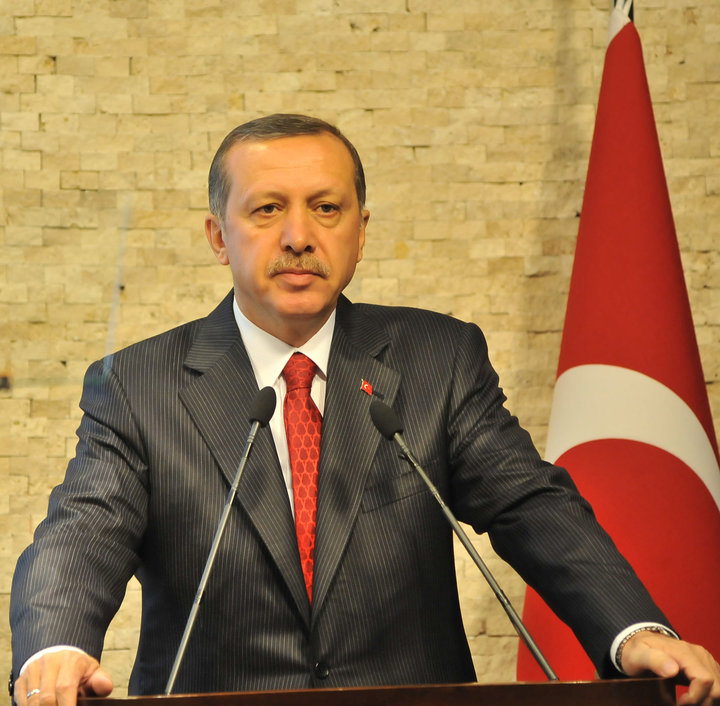News
Can one man do it all? Turkey is about to find out

“This is the Turkey brand . and its patent belongs to us,” Erdogan announced. He said the new system would strengthen democracy and the separation of powers, while bringing speed and efficiency to public services. It was made possible by constitutional changes narrowly approved in a referendum last year, and among its many changes, it does away with the office of prime minister in favour of an executive presidency. (Photo: President Recep Tayyip Erdogan/Facebook)
ISTANBUL – Days before his victory in last weekend’s elections, Turkish President Recep Tayyip Erdogan unveiled his plans for a revamped state structure of administrative offices, policy councils and ministries. A visual representation of it on the official news agency brought comparisons to a “solar system” – with all bodies orbiting around the president.
“This is the Turkey brand . and its patent belongs to us,” Erdogan announced. He said the new system would strengthen democracy and the separation of powers, while bringing speed and efficiency to public services. It was made possible by constitutional changes narrowly approved in a referendum last year, and among its many changes, it does away with the office of prime minister in favour of an executive presidency.
Critics warn that it effectively represents “ one-man rule,” with no state body strong enough to check Erdogan’s authority. But there does remain a sliver of hope – Erdogan’s success in the presidential race was not repeated in the parliamentary elections; he does not have full hold of parliament without relying on a precarious ally, and the opposition may still challenge him.
Parliament will have “much-reduced powers in checking the executive,” said Serhat Guvenc, of Kadir Has University, adding that in his view the shift marks an end to Turks’ experiment with parliamentary governance after nearly a century and a half. “We don’t know how the new system will operate,” he said, arguing that neither do its designers.
But the amended laws do leave a small space for checks and balances, making control of the 600-seat parliament crucial.
Under the new system, Erdogan will need parliamentary approval for his budget, giving the assembly some control over government spending. Parliament can also shorten, extend or cancel a state of emergency, and presidential decrees passed during emergency rule must be approved within 90 days or become void. Parliament can also pass legislation annulling a presidential decree on the same issue, and with 360 votes it can call early elections.
Erdogan’s Justice and Development Party, or AKP, saw a nearly 7 per cent drop in support and is six seats short of a majority. It will have to depend on its alliance with the small Nationalist Movement Party, or MHP, which with its 49 lawmakers finds itself in the position of kingmaker. Erdogan had pushed for an executive presidency to end parliamentary coalitions, arguing they cause instability, but now he’s forced into one.
MHP leader Devlet Bahceli reiterated his support for Erdogan Sunday night, but he is “a fickle character, difficult, very challenging to deal with,” said Fadi Hakura of think-tank Chatham House’s Turkey project. He said Bahceli now sees himself as Erdogan’s “co-equal,” and the anti-Western party could hold the AKP hostage by pressing for its nationalist and populist interests that are further to the right than Erdogan’s.
The chairman of the main opposition Republican People’s Party, or CHP, said Erdogan’s parliamentary loss would cripple him. “Yesterday’s strongman is today’s lame duck,” Kemal Kilicdaroglu said on Tuesday, even as he refused to reflect on his own party’s shortcomings.
University of Graz professor Kerem Oktem says an organized and dogged opposition would have some room to “carve out a place for itself, as a second place of power” in parliament, and make itself heard.
Despite an election campaign that international observers say was neither free nor fair, Turkey’s various opposition parties mounted a significant challenge in the elections, and may continue to do.
The pro-Kurdish Peoples’ Democratic Party, which Erdogan tries to delegitimize as “terrorists,” passed an electoral threshold to enter parliament even though nine of its lawmakers and thousands of party members are behind bars. The nascent nationalist Good Party is also now an actor in Turkish politics.
The secular CHP saw a nearly three percentage-point drop in its support that previously stood at a quarter of the electorate, and there are already cracks within the party, with mounting calls for party management to resign and renew. But Kilicdaroglu has stood firm, saying the opposition was successful in bringing all of Turkey’s “colours” to parliament and vowing to reinstitute and protect a stronger assembly.
Beyond the parliament, Erdogan’s authority remains strong. The country has had a worrying track record on rights, with a stifled judiciary since an attempted coup on Erdogan and his government in July 2016. Under a state of emergency still in place, Turkish authorities have arrested more than 50,000 people and sacked some 110,000 civil servants, including thousands of judges and prosecutors. Hundreds of media and nongovernmental organizations were shuttered and limits to demonstrations imposed.
The crackdown has widened to also include opposition lawmakers, journalists, activists and other dissenting voices. The country’s prison population has swollen to more than 230,000, with nearly half of them held in pre-trial detention without any conviction, according to the World Prison Brief database.
Muharrem Ince – the CHP’s presidential candidate – in his concession speech Monday described Erdogan’s plan as “one man becoming the executive, legislative and judiciary” and called it a threat to the country’s survival. After 15 years at Turkey’s helm – first as prime minister and then president – Erdogan will now be able to institute changes through presidential decrees, and appoint vice-presidents, ministers and top bureaucrats.
But he will have his hands full with myriad security issues and a looming economic crisis. “We will see whether it’s possible to respond to those questions adequately if you are effectively a one-person regime,” said Turkey expert Oktem.





















